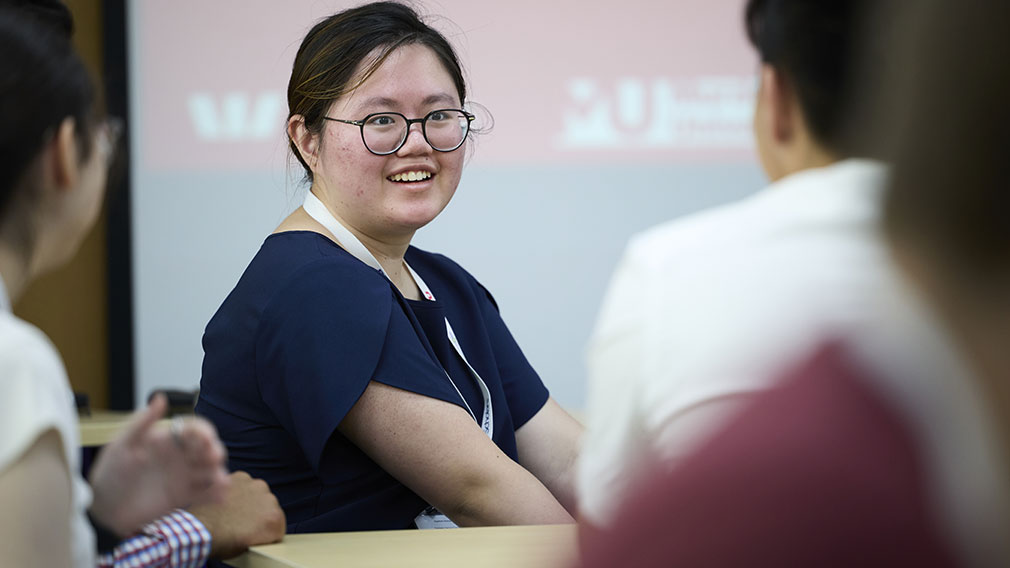Flipping tech’s gender paradigm
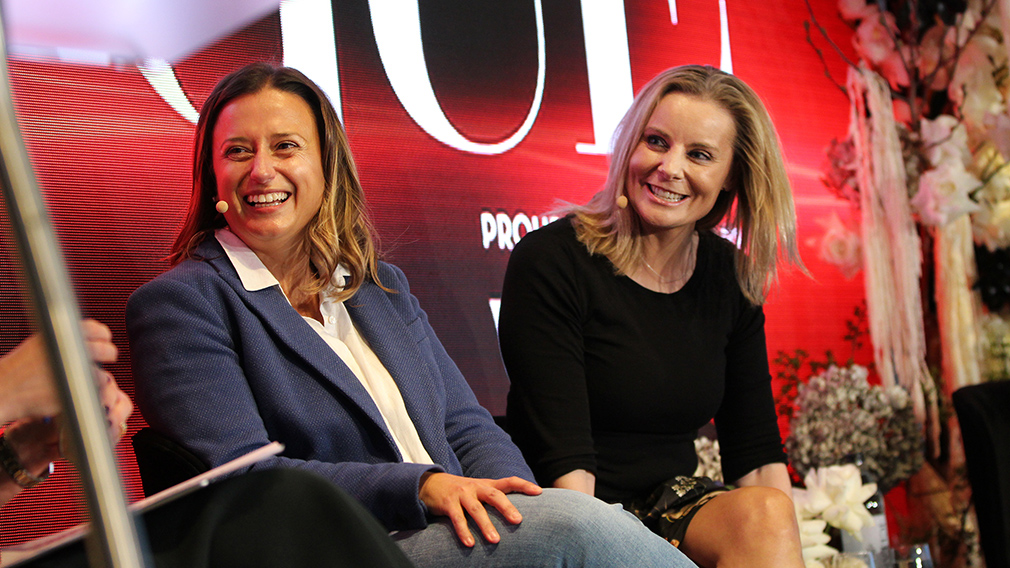
Brighte founder and CEO Katherine McConnell (left) and Atlassian head of growth Mairead O’Donovan speaking at the Vogue Codes summit in Sydney. (Emma Foster)
Besides 14 years in investment banking where she was “schooled” in spotting ideas to make money, the confidence boost Katherine McConnell needed to take the leap into starting her fin-tech business, Brighte, came from an unexpected source: becoming a mum.
“It was a really difficult time for me,” Ms McConnell, who worked part-time at Macquarie for seven years when her children, now 9 and 11, were younger, told the Sydney Vogue Codes summit last week.
“I felt a lot of career opportunities passed me by because I wasn't taken seriously. But now I look back … and there were some of the best learnings in my life. It was an amazing opportunity to hone into my instincts, understand myself, and it also made me so resilient.
“That's what gave me the strength to start this business.”
Listen to Katherine McConnell and fellow panellist Atlassian's Mairead O'Donovan in conversation with journalist Melissa Doyle at Vogue Codes:
Founded in 2015, Brighte is a digital payment platform providing home and small business owners with on-the-spot finance for energy improvements, such as solar panels, batteries and insulation, offering zero per cent interest payment plans on finance up to $30,000. Since its first loan in October 2016, the start-up has approved more than 22,000 applications worth almost $200 million and been described by Ms McConnell’s earliest investor, Atlassian co-founder Mike Cannon-Brookes, as “one of the hottest companies in the Australian tech scene”.
To date, around 2 million Australian homes have solar panels out of an estimated 7.6 million, according to the Clean Energy Council. Another Brighte investor, AirTree’s Craig Blair, said he is “hugely excited about the size of the opportunity”, noting in a Medium post that the market for home energy and home improvements is $33 billion annually in Australia.
“We make it easier for the people that sell these products to be able to close the sale and, at the point of sale, offer a solution that helps people buy that product and removes the barriers of the upfront cost,” explained Ms McConnell.
Like all Vogue Codes speakers – a line-up of almost 20 Australian and international business and education leaders, including designer Karen Walker, meat-free meat producer Shama Sukul Lee, luggage entrepreneur Jen Rubio and venture capitalist Samantha Wong – Ms McConnell addressed the persistent challenge for the tech sector: the stubbornly low proportion of women entering careers in science, technology, engineering and maths – or STEM.
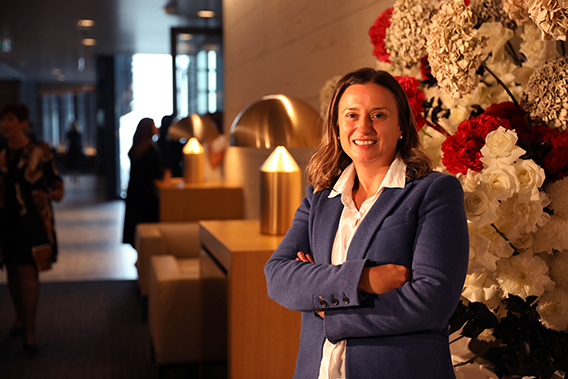
Katherine McConnell said, “You can't solve your customer's problems if you aren't like your customers”.
“You can't solve your customer's problems if you aren't like your customers. We're going to be best positioned to solve their problems if we're best reflecting who they are. And one of those things is gender diversity,” Ms McConnell said.
To get the business off the ground, Ms McConnell said she refinanced her home and made massive lifestyle changes before raising $4 million in a Series A funding round in 2017 led by Cannon-Brookes, well known for his strong advocacy for the take-up of renewable energy. The following year, other high-profile investors joined him in a Series B funding round in September which raised a further $18.5 million, including his co-founder Scott Farquhar and former banker Kim Jackson via their investment vehicle Skip Capital, venture firm AirTree, and business owner Naomi Milgrom.
Brighte also secured a $20m debt facility from National Australia Bank in May 2018.
Ms McConnell’s active pursuit of diversity has resulted in an even split of men and women working at Brighte and an all-women executive team. Fellow Vogue Codes panellist, Atlassian’s head of growth Mairead O’Donovan, said her employer also “goes to great lengths to remove biases in its hiring process”.
Vogue Australia editor in chief Edwina McCann, who described herself as “on a mission to make technology fashionable”, said in her opening address tech’s gender disparity generally started when girls became teenagers.
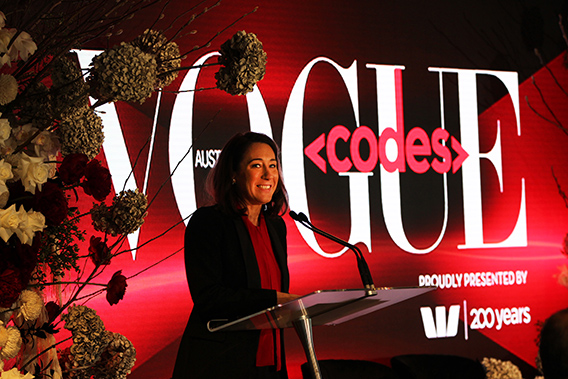
Vogue Australia editor in chief Edwina McCann said she is on a mission to "make tech fashionable".
“Technology is no longer cool. (Girls) suddenly they feel like there's no place for them,” said Ms McCann. “Cut to university, and while almost 65 per cent of all tertiary graduates are women, the statistics for computer engineering are at 16 (per cent), which is no better than when I left school in 1990.”
Craig Bright, who recently replaced Westpac’s outgoing chief information officer Dave Curran, added that the low ratio of women in technology was a critical business issue he was committed to addressing. He also unveiled alarming Westpac research that found more than half of “Gen Z” Australians – those aged 16 to 24 years – don’t think they’re capable of a career in STEM field, and 77 per cent didn’t know what “STEM” meant.
“Talent is scarce and we lack diversity. We're missing out on the unique talents, experience and skills of women in our industry and we need to change that,” Mr Bright said.

Westpac Chief Information Officer Craig Bright said getting more women into technology was a critical business issue.
“I think there is a narrow perception that a career in STEM is always highly technical,” said Anastasia Cammaroto, chief information officer for Westpac’s consumer bank, who led another Vogue Codes panel.
“But in actual fact STEM skills open up a broad range of career opportunities, including working with technology, finance, food, fashion and travel,” she said.
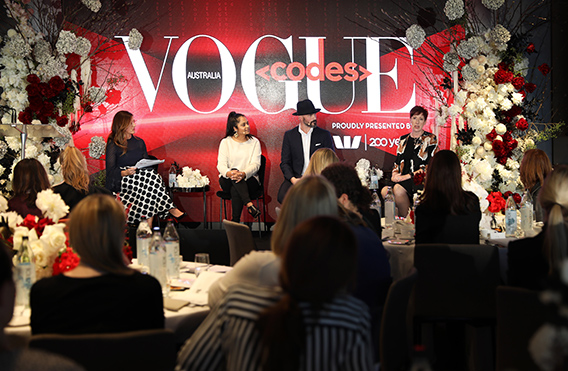
CIO for Westpac’s consumer bank Anastasia Cammaroto (at left) led a discussion among a panel of educators.
Listen to Anastasia Cammaroto's full discussion with a panel of experts on the state of STEM eduction in Australia:
“Understanding the importance of these industries is the key to encouraging young Australians, especially women, about the amazing opportunities on offer. And it all starts with education and breaking down the confusion or uncertainty around STEM from an early age,” Ms Cammaroto said.
This is the fourth year Westpac has partnered with Vogue Australia to present Vogue Codes, a multi-state annual festival attended by more than 2000 participants over three weeks.


